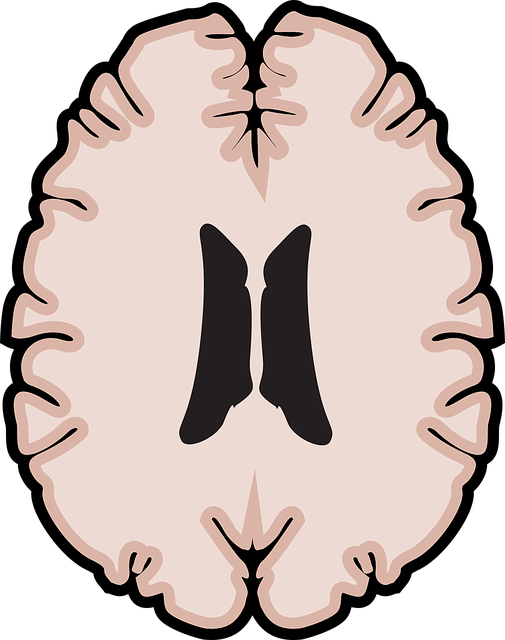Colorado Springs psychosis therapy tackles stress, a widespread concern, through holistic methods. Therapists identify triggers, from work to relationships, using evidence-based techniques like CBT and mindfulness. This approach fosters mental resilience, teaches personalized coping strategies, and addresses the mind-body connection linked to chronic stress's physical effects. Combined with Mental Health Awareness campaigns and policy advocacy, these strategies promote better stress management and improved well-being in Colorado Springs.
“Stress management is an essential aspect of maintaining mental well-being, and Colorado Springs offers a range of effective techniques to combat this modern-day challenge. This article explores various strategies to help individuals understand and overcome stress. From unraveling the causes and effects of stress to introducing therapeutic approaches like cognitive behavioral techniques and mindfulness practices, we delve into holistic methods.
One key focus is the role of Colorado Springs Psychosis Therapy in providing effective stress management tools, offering a unique perspective for those seeking comprehensive mental health support.”
- Understanding Stress: Unraveling the Causes and Effects
- The Role of Colorado Springs Psychosis Therapy in Managing Stress
- Cognitive Behavioral Techniques for Effective Stress Management
- Mindfulness and Meditation: Finding Calm in a Busy World
- Lifestyle Changes and Support Systems: A Holistic Approach to Reducing Stress
Understanding Stress: Unraveling the Causes and Effects

Stress is a complex psychological and physiological response to various internal and external factors, often referred to as stressors. It has become an increasingly prevalent concern in modern society, impacting individuals’ overall well-being. Understanding stress involves recognizing its multifaceted nature and the unique way it affects each person.
In Colorado Springs, psychosis therapy plays a vital role in helping individuals navigate and manage stress effectively. Therapists employ evidence-based techniques to unravel the intricate web of causes contributing to stress, which can range from demanding work schedules, financial pressures, or major life changes to chronic illness, relationship issues, and even cultural factors. By identifying these triggers, therapists guide clients towards fostering mental resilience and adopting healthy coping mechanisms. This process involves exploring the mind-body connection, as chronic stress can manifest physically, leading to various health issues. Mental Health Awareness campaigns have been instrumental in promoting understanding, while advocacy groups like those involved in Mental Health Policy Analysis and Advocacy drive policy changes to support better stress management and overall mental health.
The Role of Colorado Springs Psychosis Therapy in Managing Stress

Colorado Springs psychosis therapy offers a comprehensive approach to stress management, focusing on both the mind and body. This holistic treatment goes beyond addressing symptoms by teaching individuals valuable coping strategies tailored to their unique needs. Through personalized sessions, therapists guide clients in exploring techniques such as social skills training and mindfulness meditation, empowering them to build inner strength and develop healthier ways of dealing with stress.
By integrating evidence-based practices, Colorado Springs psychosis therapy helps individuals cultivate resilience and emotional well-being. Social skills training equips people with the tools to navigate relationships and communicate effectively, reducing stressors related to interpersonal interactions. Mindfulness meditation teaches individuals to stay present and centered, thereby lessening the impact of stressful situations. Ultimately, this personalized approach fosters a deeper sense of calm and empowerment, enabling clients to manage stress more effectively in their daily lives.
Cognitive Behavioral Techniques for Effective Stress Management

Cognitive Behavioral Techniques (CBT) offer a powerful set of tools for managing stress and improving mental wellness. This evidence-based approach focuses on identifying and changing negative thought patterns that contribute to stress, anxiety, and even burnout. By challenging these distorted thoughts, individuals can gain a more balanced perspective, leading to reduced stress levels. CBT is widely utilized in Colorado Springs psychosis therapy, demonstrating its versatility in treating various mental health concerns.
In the context of healthcare providers, who often face high-stress environments, CBT can be a game-changer. It equips them with effective burnout prevention strategies by teaching them to manage challenging situations and maintain a sense of control. Moreover, integrating CBT into Mental Wellness Coaching Programs Development allows for personalized guidance in cultivating healthy self-care routines. This, in turn, enhances overall mental health, ensuring professionals can better serve their patients while maintaining their well-being.
Mindfulness and Meditation: Finding Calm in a Busy World

In today’s fast-paced world, finding moments of calm amidst the hustle and bustle is essential for maintaining mental well-being. This is where mindfulness and meditation come into play as powerful tools for stress management. These practices encourage individuals to focus on the present moment, observing their thoughts and sensations without judgment. By integrating mindfulness into daily routines, folks in Colorado Springs psychosis therapy can learn to navigate life’s challenges with increased clarity and resilience.
Mindfulness involves paying attention to one’s breath, bodily sensations, and surroundings without getting caught up in external demands or internal criticism. This simple yet profound practice helps to quiet the mind and foster a sense of inner strength development. When combined with meditation, it becomes an effective stress reduction method that can enhance mood management, enabling individuals to cultivate a deeper connection with themselves and their environment.
Lifestyle Changes and Support Systems: A Holistic Approach to Reducing Stress

In the context of Colorado Springs psychosis therapy, a holistic approach to stress management involves addressing both lifestyle changes and building robust support systems. This two-pronged strategy recognizes that mental well-being is intricately linked with physical health and social connections. By integrating healthy habits into daily routines, individuals can significantly enhance their coping skills development. This includes regular exercise, balanced nutrition, adequate sleep, and mindfulness practices, which have been scientifically proven to reduce stress levels and improve overall mood management.
Moreover, fostering strong support systems through open communication with family, friends, or professional networks is an essential component of effective stress management. Sharing experiences, seeking advice, and accepting help can create a sense of belonging and alleviate the burden of stress. This supportive network acts as a buffer against life’s challenges, providing emotional resilience and practical solutions for coping with stressful situations. Such interconnectedness not only promotes individual well-being but also strengthens the community, creating a healthier and more supportive environment for everyone involved, including those seeking Colorado Springs psychosis therapy services.
In conclusion, managing stress effectively is a multifaceted approach that combines understanding its causes and effects with utilizing various techniques such as cognitive behavioral therapy, mindfulness, lifestyle changes, and support systems. As highlighted by the benefits of Colorado Springs Psychosis Therapy, professional guidance can play a pivotal role in navigating stress. By integrating these strategies into daily life, individuals can foster resilience, enhance overall well-being, and lead more fulfilling lives, even in today’s fast-paced world.














